Adsactly Literature - Prophetic vision, nature and imagination (English romanticism - Part I)
Prophetic vision, nature and imagination (English romanticism - Part I)
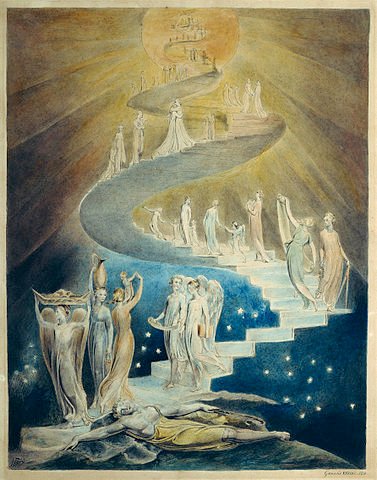
Prophetic vision, nature and imagination (English romanticism - Part I)
As we continue our journey through the origins of modern Western literature, I will refer to English Romanticism. Together with German, it has a founding character of Romanticism in general. It shares common ground with German Romanticism, but has its own unique features. I will present here the fundamental ones, in a first part, through the sample of complete texts or fragments of their main representatives.
William Blake, the visionary
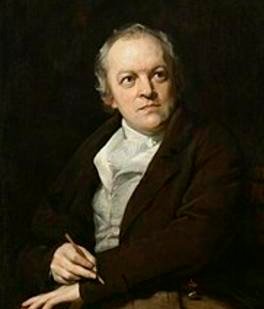
When considering the beginnings of English romanticism it is obligatory to refer to the work of the writer, painter and engraver William Blake (London, 1757-1827), although there are other precursors such as Edward Young, James Thomson and Thomas Gray. But Blake stands out especially for his separation from the neoclassicism that was imposed in the eighteenth century, introducing the use of a peculiar symbolism, his oneiric and fantastic vision, as well as the recreation of images of biblical, mythological and esoteric roots. All this was marked by his attitude of social criticism and individual rebellion; this was expressed in his sympathy (later defrauded) for the French revolution, his inclination towards racial and sexual equality, and in favour of women. He was the author of a poetic work of extensive thought that includes titles such as Songs of Innocence, Songs of Experience, The Weddings of Heaven and Hell, Visions of the Daughters of Albion and Jerusalem.
Blake's poetic and plastic work is nourished by the anticipatory (prophetic) visions he experienced or created and which he collected in writings and paintings. Go and speak through what he called the "voice of the Vate" (of the poet - I guess, as it was conceived); thus we read in Songs of experience: "Hear the voice of de bard! / Who Present, Past, & Future, see; / Whose ears have heard / The Holy Word / That walked among the ancient trees!". Also in Songs of Innocence: "In futurity / I prophetic see / That the earth from sleep / (Grave the sentence deep) // Shall arise and seek / For her maker meek; / And the desert wild / Become a garden mild."
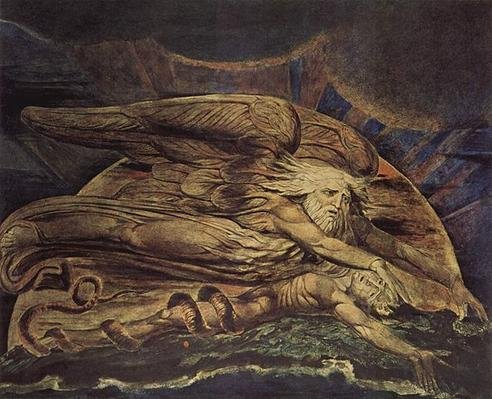
In Blake's complex and cryptic poetic and spiritual vision, one aspires to the "Universal Man", which is the manifestation of the "Perfect Unity"; hence his condemnation of the "frightful state of Separation". His vision is Edenic. The human and the divine are integrated: "Thus men forgot that All deities reside in the human breast"; "For everything that lives is sacred". His conception is integral and open, as much in the sensorial as in the psychic: "If the doors of perception were clean, everything would appear to men as it really is: infinite", he says in The weddings of heaven and hell. Or otherwise in Songs of Innocence: "To see a world in a grain of sand / and a paradise in a wild flower, / hold the infinite in the palm of your hand / and eternity in an hour".
I reproduce a complete poem by Blake, one of the most beautiful, impressive and well-known: "The tiger", included in Songs of experience:
Tyger, tyger, burning bright
In the forests of the night,
What immortal hand or eye
Could frame thy fearful symmetry?
In what distant deeps or skies
Burnt the fire of thine eyes?
On what wings dare he aspire?
What the hand dare seize the fire?
And what shoulder and what art
Could twist the sinews of thy heart?
And when thy heart began to beat,
What dread hand and what dread feet?
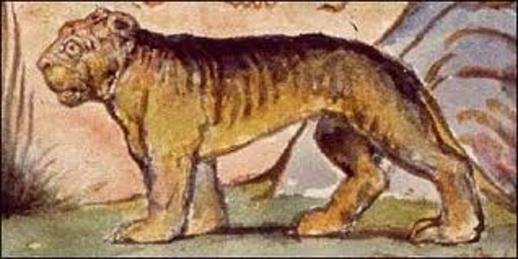
What the hammer? what the chain?
In what furnace was thy brain?
What the anvil? What dread grasp
Dare its deadly terrors clasp?
When the stars threw down their spears,
And water’d heaven with their tears,
Did He smile His work to see?
Did He who made the lamb make thee?
Tyger, tyger, burning bright
In the forests of the night,
What immortal hand or eye
Dare frame thy fearful symmetry?
William Wordsworth: the power of emotion and imagination
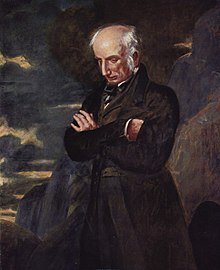
William Wordsworth (1770-1850) and Samuel Taylor Coleridge are the implanters of Romanticism in England with their book Lyric Ballads, published anonymously in 1798, considered the "manifesto" of English Romanticism. Some quotations from Wordsworth's foreword in Lyrical Balads:
Poetry is the beginning and the end of all knowledge; it is as immortal as the heart of man.
The poet, singing a song in which all human beings accompany him, rejoices in the presence of truth as our visible friend and companion of all hours.
I have said that poetry (...) originates in the emotion remembered in tranquillity: emotion is contemplated until, by a kind of reaction, the tranquillity gradually disappears, and an emotion, similar to the one contemplated before, is gradually produced and actually exists in the mind.
(...) the poet distinguishes himself fundamentally from other men by a greater readiness to think and feel without immediate external excitement, and a greater power to express the thoughts and emotions that are produced in him in that way. But these passions and thoughts and emotions are the same of all men.
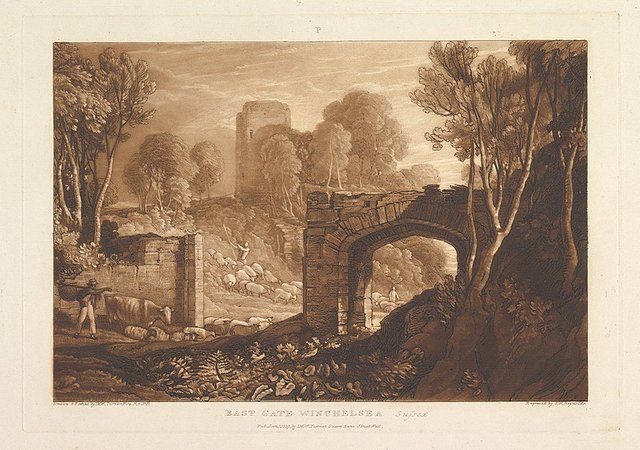
Wordsworth meditates on the condition of poetry and the poet, and anticipates the critique that will be made of the easily spontaneous and immediate emotion of a certain "romanticism. He delves into the mystical character of poetry, which discovers the depth of mystery in the simple incidents of Nature and everyday situations, and lends prestance to prose and unadorned saying. He privileges imagination over fantasy, which "is given to us to excite and seduce the temporal part of ourselves"; while imagination is the highest power to enter into communion with the visible world by revealing the invisible in the universe. In Octavio Paz's words, imagination is "that faculty that Wordsworth calls "soul of nature" to signify that it is a transhuman power.
I transcribe the whole poem "If you really draw your light from the sky":
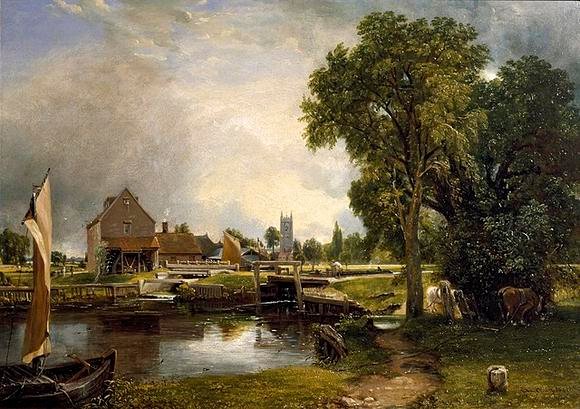
If thou indeed derive thy light from Heaven,
Then, to the measure of that heaven-born light,
Shine, Poet! in thy place, and be content:
The stars preeminent in magnitude,
And they that from the zenith dart their beams
(Visible though they be to half the earth,
Though half a sphere be conscious of their brightness),
Are yet of no more diviner origin,
No purer essence, than the one that burns,
Like an untended watch-fire, on the ridge
Of some dark mountain; or than those which seem
Humbly to hang , like twinkling winter lamps,
Among the branches of the leafless trees;
All are the undying offspring of one Sire:
Then, to the measure of the light vouchsafed,
Shine, Poet! in thy place, and be content.
John Keats: the "negative capacity"
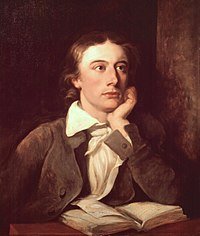
John Keats (1795-1821) is included among the most important poets of English romanticism, in the second generation of this, close to Lord Byron and Shelley. The poet of the "Ode to the Nightingale", with which he is identified ("But you were not born to die, oh immortal bird!"), was a poet of an intense work. He is curious as his epitaph says: "Here lies one whose name was written in the water". Keats not only had a brief life (he died very young from tuberculosis), but also a thought about himself and art that was markedly romantic, in the best sense of the adjective.
Keats' poetic thought ˗expressed in his poems, but also in other texts, such as his letters˗ reflects on the transience and permanence of life, the inherent sense of sadness, sickness and death.
There is one aspect of an unavoidable attention in Keats' thought, manifested in a letter to his brothers in 1817: the one called by him "negative capacity", that by which a man can "find himself in the midst of uncertainties, mysteries, doubts, without making any irritable effort to reach reality and reason", but be able to risk the test of life and experience its intensity.
Keats, in arduous agony with himself, can live in the midst of the oppositions that constitute his existence, and assumes them as part of his experience of mystery, which is attention and rapport.
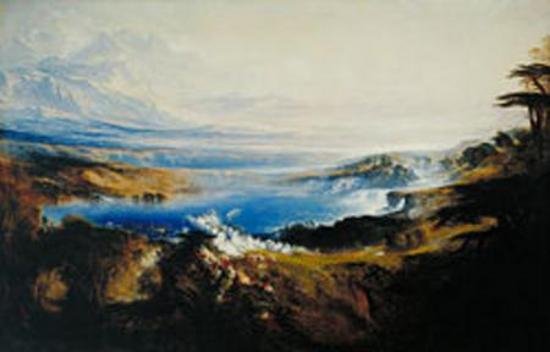
A brief poem by Keats, to conclude:
The poetry of the earth never dead:
When all the birds are faint with the hot sun,
And hide in cooling trees, a voice will run
From hedge to hedge about the new-mown mead.
This is the Grasshopper's˗he takes the lead
In summer luxury, ˗he has never done
With his delights; for when tired out with fun
He rests at ease beneath some pleasant weed.
(Note: The poems cited have been transcribed in their original versions)
Bibliographic references
Abrams, M.H. (1992). Romanticism: tradition and revolution. Spain: Visor.
Blake, William (1980). Complete poetry. Volumes I and II (bilingual edition). Spain: Libros Río Nuevo.
Cadenas, Rafael (1979). Reality and Literature. Caracas: Equinox (USB).
Keats, John (1980). Complete poetry Volume I (bilingual edition). Spain: Libros Río Nuevo.
Paz, Octavio (1985). The sons of the limo. Colombia: La Oveja Negra Publishing House.
Reul, Paul de (1982). William Wordsworth (bilingual edition). Spain: Ediciones Júcar.
Wordsworth, W. and Coleridge, S. T. (1985). Lyrical ballads. Caracas: Monte Ávila Editores.
I close this first part of the presentation of English romanticism, which, due to its richness and breadth, we must continue in the near future. I thank you for your attention, and @adsactly for giving me the opportunity to publish on your blog. Greetings.
Written by @josemalavem
Click on the coin to join our Discord Chat

Witness proposal is here:
Go To Steem Witness Page
In the bottom of the page type: adsactly-witness and press vote.

Use small letters and no "@" sign. Or, click here to vote directly!
Thank you!
I'm a John Keats fan. About his death, I remember reading in Susan Sontag's The Sickness and its Metaphors that for romantics, illness was a higher form of life that was more spiritual and deeper. We must not forget that romantic Europe mitigates tuberculosis, relating it to sensitivity, creativity and bohemian life. Excellent work, @josemalacem: educational and interesting. Thank you for sharing.
Keats is undoubtedly one of the most sensitive English-speaking poets, and his life is as close to the romantic ideal as possible. Initially misunderstood, his work was later vindicated by his later readers, and he is always reborn as the nightingale of his ode. Thank you for your reading and comment, @nancybriti.
Posts that are very educational and enlightening.
When reading romantic literature, especially in poetry, we are invited to go down the aisle in the past.
Our imagination is invited to surf towards his literary thoughts.
how a sentence becomes very dense with the meaning and beauty of sound or the rhyme on the line feels so thick. pouring out stories of life, experience and contemplation deep with the beauty of rima. An inner experience that is certainly very full of twists and turns to be able to find the right words to be expressed in an array of poetry or prose.
Very interesting post and I am waiting for the next post
Thank you @josemalavem
Thank you @adsactly
Thank you Steemit
Warm regard from Indonesia
Grateful for your attentive and emotional appreciation, @rokhani. Poetry, whether in rhymed or free verses or in prose, will retain its value and significance as long as it is received by readers like you. My greetings.
Poets are beings of great feeling and although in some cases their life is short like that of John Keats his work is eternal. Thanks for sharing this article!
That's right, @anasuleidy. Poetry endures in the souls of peoples and readers. Keats is one of the great ones. Thank you for your attention.
William Blake's works provide so much to keep returning to. Thanks for bringing this topic here.